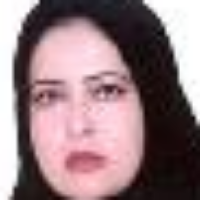Investigating the effect of dust on the economy of Ahvaz city
The purpose of this study is to investigate the effect of dust on the economy of Ahvaz. The present study has used descriptive and analytical research methods. In addition, this research is applied-developmental in terms of purpose. The statistical population of the study includes specialists, managers, experts and professors in the field of environment and dust in the city of Ahvaz is 65 people. The sample size was selected based on the total census of 65 people. A questionnaire designed in urban economics in the city of Ahvaz, which has four main variables. Based on this, the questionnaire has 32 questions that will be researcher-made and each of the four main variables has eight questions. Experts and professors formalized the validity of the questionnaire and its reliability was confirmed by Cronbachchr('39')s alpha of 0.81. Data analysis was performed based on structural equation analysis in Smart PLS software. In general, dust has affected the economy of Ahvaz city and this has been in such a way that dust on urban housing with an impact factor of 0.63 and a value of 11.4 T, Dust mites on urban transport with an impact factor of 0.60 and a value of 9.94 T, dust mites on urban facilities and facilities with an impact factor of 0.54 and a value of 6.70 T and dust mites on urban finance with an impact factor of 0.68 and a value of T 16 / 12 has had an impact
dust , economy , housing , transportation , facilities , Ahvaz city
-
Developing Empowerment Strategies and Physical Analysis of Deteriorated Urban Fabric Using an Integrated AHP and SWOT Approach (Case Study: District 12 of Tehran)
Vahid Reza Anaraki Mohammadi, Mohammadreza Zand Moghaddam*, Saeed Kamyabi
Management Strategies and Engineering Sciences, Summer 2025 -
Developing a Smart Strategic Planning Model for Ecotourism Development in Peri-Urban Spaces of Mashhad Metropolitan Area
Reyhaneh Ezadi, Mohammad Reza Zandmoghadam *, Saeed Kamyabi,
Journal of Intelligent Marketing Management, -
Analyzing the Lived Experience of the Citizens of Karaj City Focusing on the Livability Components
Mohammadbaqer Asraei, *, Mohammadreza Zand Moghadam
Geographic Space, -
Evaluating and Analyzing Sustainable Conditions in Historical Urban Areas: A Case Study of the Historical Neighborhoods in District 8 of Tabriz Metropolis
Adel Pourghorban*, , Zeynab Karkehabadi
Journal of Urban Futurology, -
Assessing the level of spatial justice and distribution of urban services in the region 4
Mohsen Bahador*,
Journal of Future Cities vision, -
Explaining the Drought Management Pattern in Rural Areas (Case Study: Eslamabad Gharb district).
Bahman Shafiee *, Hamid Barghi, Yusef Ghanbari
Journal of Sustainable Rural Development, Autumn and Winter 2020




